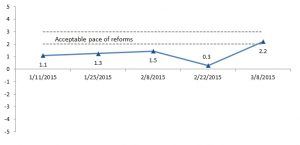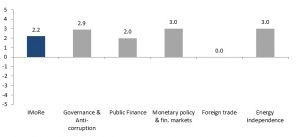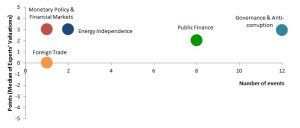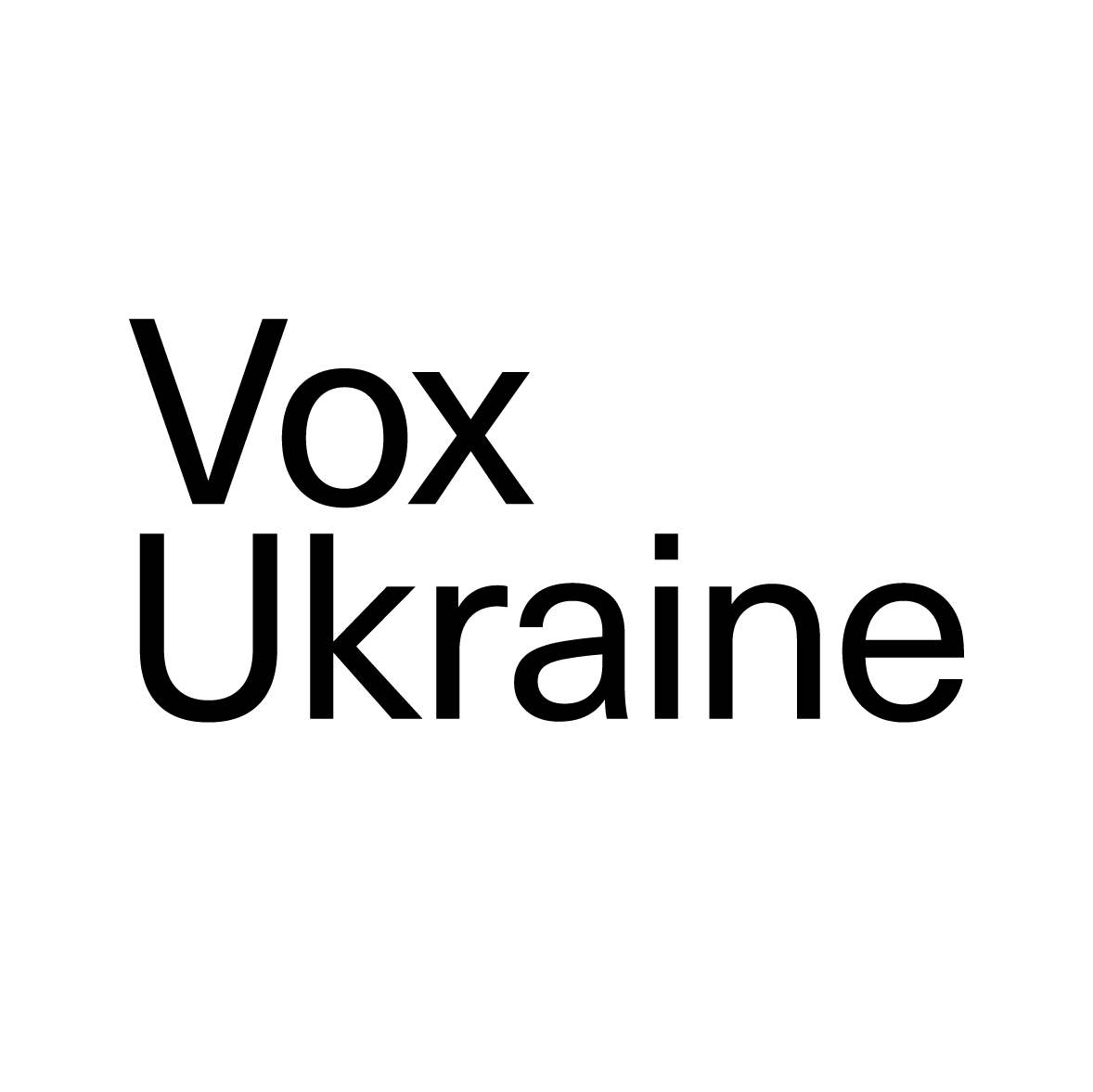Reform Index is calculated once in two weeks based on an expert survey. Reform Index value for the fifth monitoring period (February 23th – March 8 th 2015) amounted to +2.2 points out of the possible range from -5.0 to +5.0 points.
Chart 1. Reform Index dynamics

Chart 2. Reform Index and its components in the current round

Issue 5: Reforms accelerated significantly thanks to the IMF package
Reform Index value for the fifth monitoring period (February 23th – March 8 th 2015) amounted to +2.2 points out of the possible range from -5.0 to +5.0 points. It is the highest Index value since the start of monitoring (December 2014) and corresponds to acceptable pace of reform (2-3 points). Considerable reform progress was to a great extent attributed to fulfillment of the IMF requirements, such as hike in gas and heating tariff for households and approval of a package of important laws.
Significant increase in heating and gas tariffs for households by the National Commission for State Energy and Public Utilities Regulation (NERC) was the most important event in this round. This decision received 9.0 points, which is the highest value for an individual event from the beginning of the monitoring, namely from mid-December 2014 (we remind that an event grade is the sum of grades this event receives along several directions of reforms and therefore can exceed +5.0 points). Tariffs hike was one of the main conditions of the IMF program. Experts pointed out that this decision will reduce fiscal deficit, diminish incentives for corruption and encourage energy saving, though noted that gas sector remains non-transparent and inefficient, therefore reform should not be limited to tariffs hike.
The adoption of the law on strengthening bank owner responsibility was another significant event that received 7.0 points. According to experts, this law from the “IMF package” will facilitate cleaning of the banking system from failed banks and reduce government expenditures on the rehabilitation of the banking sector, but only if executed properly.
Several more laws from the “IMF package” attributed to the high Reform Index value, namely, temporary restriction of pensions for working pensioners (2.0 points), changes in the State Budget 2015 (2.0 points) and the Budget Code (1.5 points) as well as establishing procedures for appointing and dismissing Director of Anti-Corruption Bureau (3.0 points).
Chart 3. Value of Reform Index components and number of events February 23 – March 8, 2015

At the same time, experts pointed out several important changes beyond the IMF requirements. The law on the transparency of using public funds (4.0 points) scored the third highest number of points. Other events with high grades were NERC decision to increase electricity tariffs in 5 stages (3.0 points), the law on voluntary association of local communities (2.5 points) and decision of the Cabinet of Ministers on some issues of deregulation of economic activity (2.5 points).
Consequently, the significant progress in reforms was observed in four out of the five areas covered by the Index: progress in the Governance and Anti-Corruption direction was estimated at 2.9 points, Monetary Policy and Financial Markets, as well as Energy Independence received 3.0 points, while the direction of Public Finance scored 2.0 points. At the same time, the External Trade direction received 0 points.
Reform Index aims to provide a comprehensive assessment of reform efforts by Ukraine’s authorities. The Index is based on expert assessments of changes in the regulatory environment in five areas:
- Governance and Anti-Corruption
- Public Finance and Labor Market
- Monetary Policy and Financial Markets
- Industrial Organization and Foreign Trade
- Energy Independence
For details please visit reforms.voxukraine.org
Main media partner Project partners

Attention
The authors do not work for, consult to, own shares in or receive funding from any company or organization that would benefit from this article, and have no relevant affiliations



